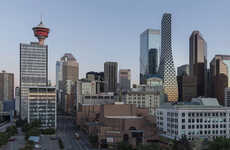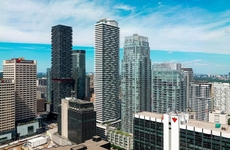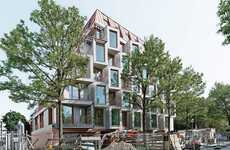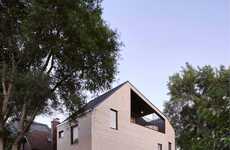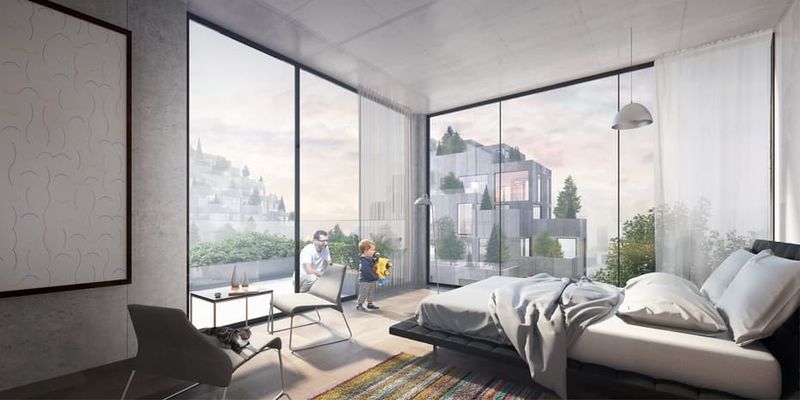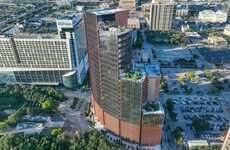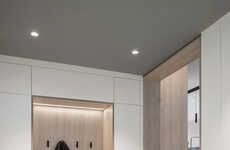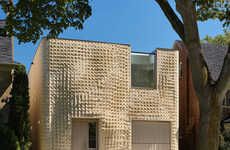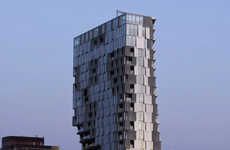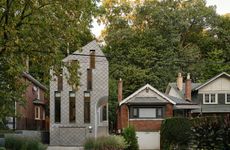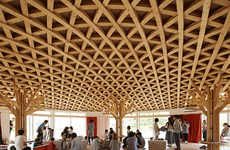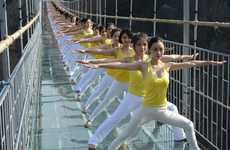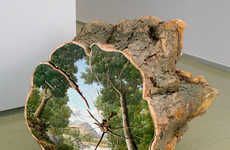
The King Street West Building Will Revitalize Toronto Architecture
Rahul Kalvapalle — March 26, 2016 — Art & Design
King Street West is an innovatively designed building, designed by Bjarke Ingels Group (BIG), that features an undulating and pixelated shape factor that is clearly influenced by Moshe Safdie's Habitat 67 project.
The building will feature a visibly low profile that will rise and fall in a manner that is clearly inspired by Habitat 67. The pixels are neatly aligned to be visibly pleasing, and will be turned at 45 degrees relative to the streets along they run, in order to optimize the amount of light and air they are exposed to.
Ultimately, this undulating, pixel-dotted downtown building will help revitalize downtown Toronto architecture by adding a touch of spunk and personality to a city whose architecture has been criticized as not reflecting its diversity.
The building will feature a visibly low profile that will rise and fall in a manner that is clearly inspired by Habitat 67. The pixels are neatly aligned to be visibly pleasing, and will be turned at 45 degrees relative to the streets along they run, in order to optimize the amount of light and air they are exposed to.
Ultimately, this undulating, pixel-dotted downtown building will help revitalize downtown Toronto architecture by adding a touch of spunk and personality to a city whose architecture has been criticized as not reflecting its diversity.
Trend Themes
1. Pixelated Architecture - The use of pixelated shapes and patterns in architectural design presents disruptive innovation opportunities in creating visually striking and unique buildings.
2. Revitalized City Architecture - Revamping city architecture by infusing new designs and concepts, such as undulating and pixelated forms, can bring renewed interest and rejuvenate urban spaces.
3. Diversity in Architectural Expression - Incorporating diverse architectural influences and styles, like the undulating and pixelated design of King Street West, promotes inclusivity and celebrates cultural diversity in architectural expression.
Industry Implications
1. Architecture and Design - The architecture and design industry can explore new possibilities and push boundaries by incorporating pixelated and undulating elements into their projects, creating distinct and memorable structures.
2. Urban Planning - Urban planners can utilize pixelated and undulating architectural designs to revitalize cityscapes and create dynamic and visually appealing urban environments.
3. Real Estate Development - Real estate developers can capitalize on the trend towards pixelated and undulating architectural designs to attract buyers and renters who seek distinctive and modern living and working spaces.
2.5
Score
Popularity
Activity
Freshness


